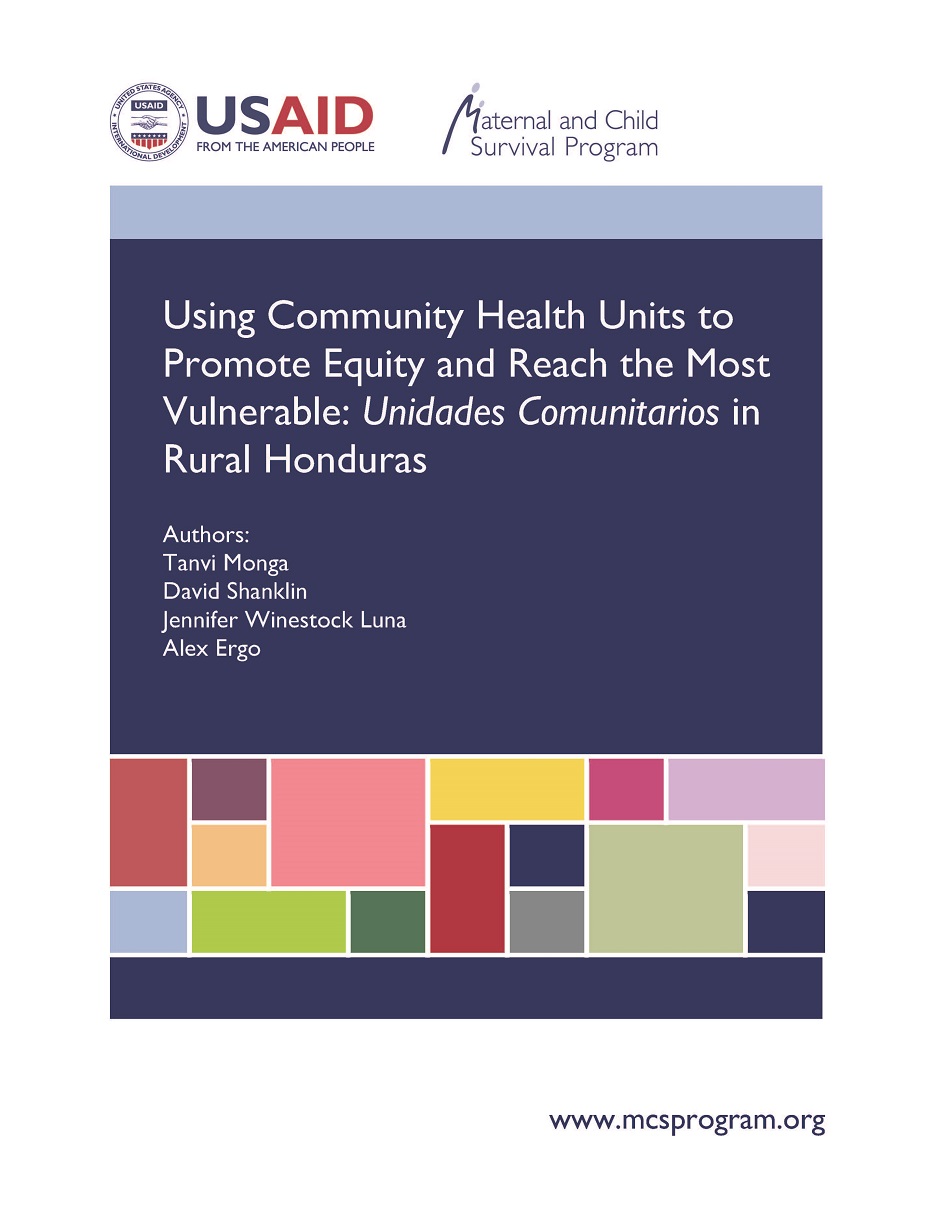Publish Date: October 2016
Author: Tanvi Monga, David Shanklin, Jennifer Winestock Luna, Alex Ergo
To help rural, poverty-stricken populations living in a mountainous area of Honduras overcome geographic and financial barriers to health care, ChildFund set out to bring high-quality, cost-effective interventions to
these communities through the establishment of community health units (unidades comunitarios, abbreviated UCOS, in Spanish) in 2009. The UCOS used physical structures that were built using community resources to
deliver basic maternal, newborn, and child health and nutrition services in isolated areas. Community volunteers offered care, attention, and education to persons in need—particularly, women, infants, and children less than five years old.
The approach and methods applied by ChildFund led to changes in physical access to basic maternal, newborn, and child health services; service coverage and certain client health behaviors; client out-of-pocket costs for health services; and under-five mortality rates in the project area.
This project was able to demonstrate that: 1) the UCOS model improves equity through its pro-poor approach, which prioritizes the most disadvantaged groups; 2) community-based services delivered by community health workers can improve coverage of essential health interventions in a cost-effective way; and 3) a strong monitoring and evaluation component built into the program from the outset is both feasible and desirable.
Using Community Health Units to Promote Equity and Reach the Most Vulnerable: Unidades Comunitarios in Rural Honduras (1032 downloads )

